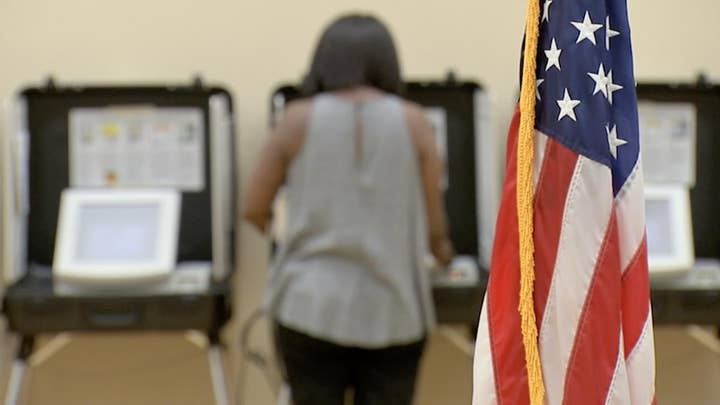Buttigieg narrowly leads Sanders in Iowa caucuses with 97% of precincts reporting
Iowa Democratic Party officials reveal new details on delay in caucus results; Reaction and analysis from Fox News Decision Desk Director Arnon Mishkin.
A new bill working its way through the statehouse in Sacramento could allow hundreds of independent voters in the state to go to the ballot box in California’s upcoming Democratic primary election on Super Tuesday, March 3.
The bill, which was introduced by California state Sen. Melissa Hurtado, would permit voters to change their party affiliation or address within two weeks of Election Day without having to re-register to vote.
The bill has already cleared the state Assembly, 60-12, and is up for consideration by the state Senate soon before it would be sent to Gov. Gavin Newsom for his signature, signing it into law.
BUTTIGIEG SOARS, BIDEN SLIPS, SANDERS STILL ON TOP IN NEWEST NEW HAMPSHIRE POLL
Currently, voters looking to cast a ballot in California’s Democratic primaries must re-register to vote 15 days or more before an election if they want to change their political party preference or address.
A similar bill was vetoed last year by Newsom, who said at the time that it would “create a state reimbursable mandate with likely significant ongoing general fund costs to the state.”
The new bill, which Hurtado says is “substantively identical” to last year’s, is meant to streamline the voting process.
“In 2018, California piloted conditional voter registration and some polling places reported lines over five hours long as a result of the additional voters,” Hurtado said in a statement. “Therefore, it is urgent to put a procedure in place to efficiently provide voters assistance this upcoming presidential primary.”
CLICK HERE TO GET THE FOX NEWS APP
If this bill gets Newsom’s blessing, it will immediately become law -- meaning it would apply to both California’s primary on March 3 and November’s general election.
The bill could also have a major impact on who eventually becomes the Democratic presidential candidate, given that the number of independent voters in California has skyrocketed in recent years and the state -- and its 494 delegates -- is arguably the biggest prize on Super Tuesday.
With the confusion surrounding the Iowa caucus and the possibility that no clear front-runner emerges from the primaries in New Hampshire, Nevada and South Carolina, California could play a major role in deciding who the Democrats choose as their candidate to go up against President Trump in November.















































